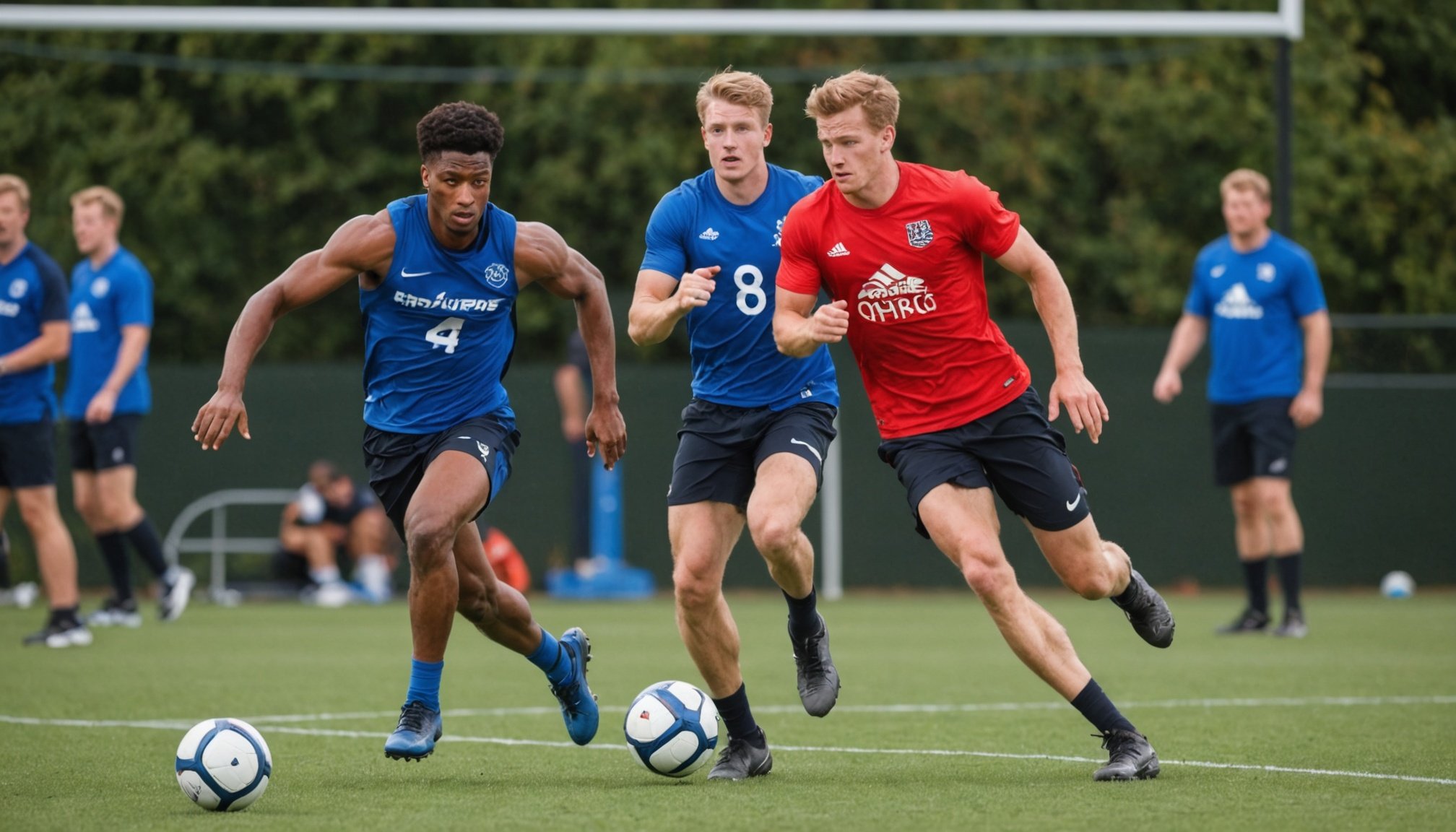Balancing the demands of academia and sports is a challenge faced by many UK athletes. With rigorous training schedules and academic obligations, finding a manageable equilibrium is crucial for success in both areas. This article aims to explore various strategies that can help athletes navigate their dual commitments effectively. From time management techniques to support systems, we will provide valuable insights for young athletes striving to achieve their full potential.
Understanding the Dual Commitments
For many UK athletes, the pursuit of sporting excellence often coincides with the pressures of academic life. The dual commitments of training and studying can be overwhelming, yet they are integral parts of an athlete’s journey. Understanding the nature of these commitments is the first step towards achieving a balance.
Also to read : How can amateur cyclists improve their performance during the UK Cycling Championships?
Academic responsibilities can vary significantly, from attending lectures and completing assignments to preparing for examinations. Simultaneously, sports training requires dedication, often involving early morning workouts, long hours of practice, and travel for competitions. This overlap can lead to stress, fatigue, and, in some cases, burnout.
To navigate these challenges, athletes must clearly recognize their priorities. Identifying specific academic goals alongside sports objectives can help in making informed decisions about how to allocate time and energy. By understanding that both areas contribute to personal and professional development, athletes can approach their responsibilities with a more focused mindset.
Topic to read : What are the key components of a successful sports marketing strategy in the UK?
Moreover, open communication with educators and coaches is vital. Discussing schedules and academic expectations can lead to supportive arrangements that accommodate both training and study commitments. Ultimately, this understanding lays the groundwork for effective time management and prioritization.
Effective Time Management Strategies
Time management emerges as a fundamental skill for athletes striving to balance academic responsibilities with sports training. Developing effective techniques can lead to a more organized and productive routine.
Firstly, creating a detailed schedule is essential. Utilizing digital calendars or planners can help you visualize your commitments. By mapping out your training sessions, classes, and study time, you can identify any potential conflicts early on. This proactive approach enables you to adjust your plans as necessary, ensuring that you allocate sufficient time to both academics and athletics.
Additionally, prioritizing tasks can significantly enhance efficiency. Not all assignments or training sessions are of equal importance. By distinguishing between urgent and important tasks, you can focus on what truly matters. For example, if an upcoming competition requires additional preparation, you might prioritize training over studying for a minor quiz. Conversely, if you have an upcoming exam, it may be prudent to focus on studying while temporarily reducing training intensity.
Moreover, implementing techniques such as the Pomodoro Technique—working in focused intervals followed by short breaks—can improve concentration and reduce burnout. This method allows you to maintain a high level of productivity without overwhelming yourself.
Lastly, don’t forget to allocate time for rest and recovery. Continuous engagement without breaks can lead to fatigue, impacting both academic performance and athletic abilities. By recognizing the importance of downtime, you create space for rejuvenation, ultimately enhancing your overall productivity.
Utilizing Support Systems
Support systems play a crucial role in helping UK athletes balance their academic and sporting commitments. Leveraging available resources can ease the burden and provide additional guidance.
Firstly, engaging with academic advisors can be immensely beneficial. These professionals can offer insights into managing coursework alongside training schedules. They can help you identify flexible learning options, such as online courses or part-time study programs that align with your training commitments. This flexibility is vital as it allows you to adapt your academic workload according to your sports calendar.
Additionally, coaches and sports mentors are invaluable allies. By fostering an open relationship with your coach, you can discuss any academic pressures you may be facing. Coaches are often understanding and can sometimes adjust training schedules to accommodate important academic commitments, such as exams or deadlines.
Moreover, peer support cannot be underestimated. Engaging with fellow athletes who face similar challenges can provide encouragement and shared strategies for balancing responsibilities. Study groups or training partners can motivate you to stay on track academically while also pushing you to excel in your sport. This camaraderie fosters a sense of community, which can be incredibly uplifting during stressful times.
Finally, don’t overlook the importance of mental health resources. Many universities and sports organizations offer counseling services that can help you develop coping strategies for stress. These professionals can assist in creating personalized plans to balance your commitments more effectively.
The Role of Nutrition and Physical Well-Being
Nutrition and physical well-being are vital components of managing the demands of both academics and sports training. A well-rounded diet and proper physical care can significantly enhance your performance in both areas.
To start, understanding the impact of nutrition on your energy levels is crucial. Athletes require a balanced diet that fuels their bodies for rigorous training while also supporting cognitive function for academic tasks. Incorporating a variety of foods, including whole grains, lean proteins, fruits, and vegetables, ensures you receive the necessary nutrients to sustain your energy throughout the day.
Meal planning can be a strategic way to maintain a healthy diet despite a busy schedule. Preparing meals in advance can save time and reduce the temptation to opt for unhealthy, quick snacks. This practice also allows you to control your dietary choices better, ensuring that you’re nourishing your body appropriately.
Physical well-being extends beyond nutrition. Adequate sleep is non-negotiable for both athletic performance and cognitive function. Research shows that lack of sleep can hinder concentration and memory, directly affecting academic performance. By prioritizing sleep, you enhance your ability to absorb information and recover effectively from training sessions.
Moreover, incorporating relaxation techniques such as yoga or meditation can significantly reduce stress levels. These practices promote mental clarity and physical relaxation, creating a balanced approach to your demanding schedule. When your body and mind are well cared for, you are better equipped to tackle the challenges of academia and sports.
Balancing academic responsibilities with sports training is a multifaceted journey for UK athletes. By understanding the dual commitments, implementing effective time management strategies, utilizing support systems, and prioritizing nutrition and well-being, you can create a sustainable approach to your goals.
Achieving this balance is not merely about managing time; it’s about cultivating a mindset that values both education and athletics. As you navigate these responsibilities, remember that success in one area can positively influence performance in the other. By fostering discipline and resilience, you position yourself for success—not only as an athlete but also as a well-rounded individual prepared for the challenges of the future.











